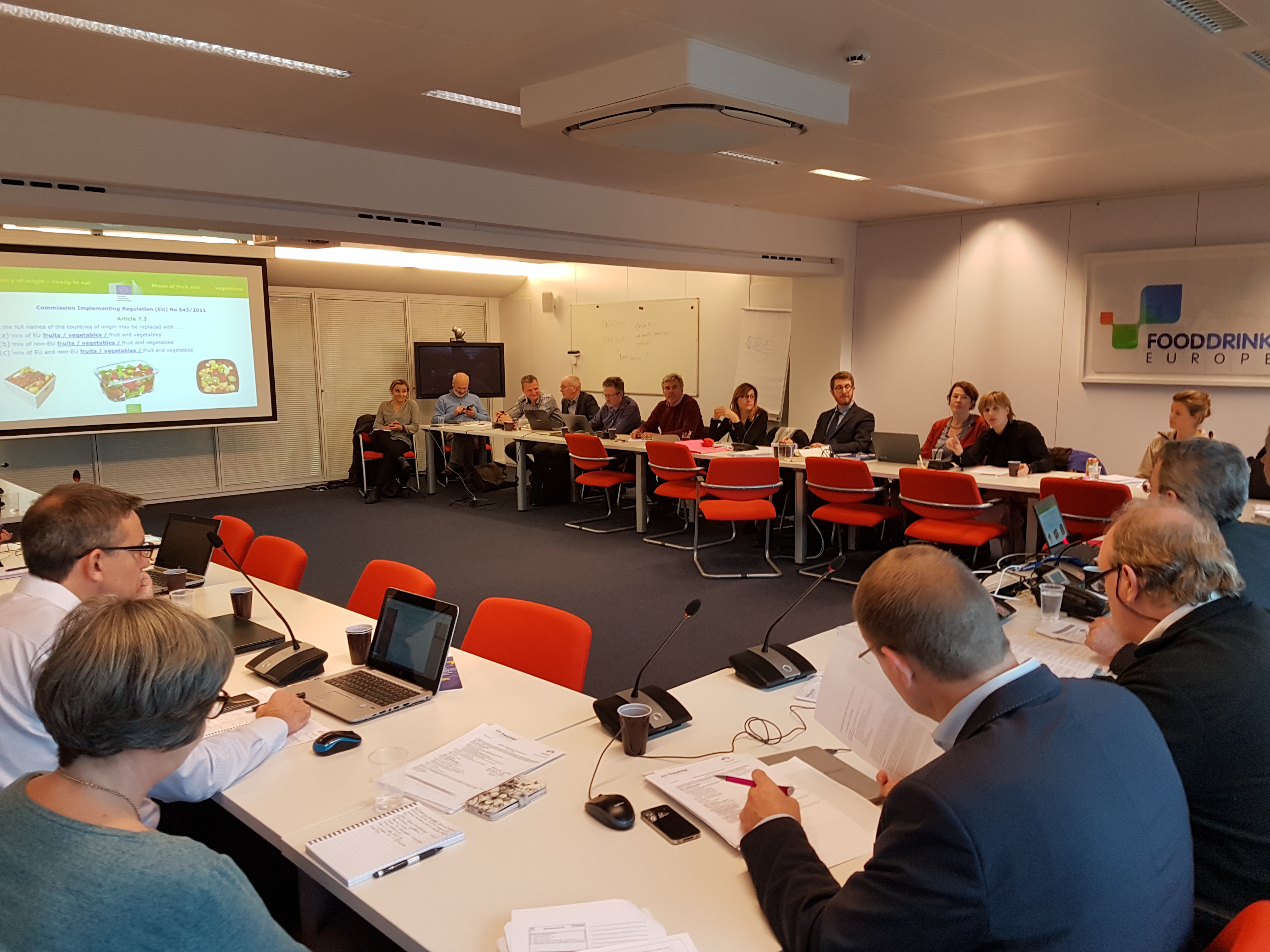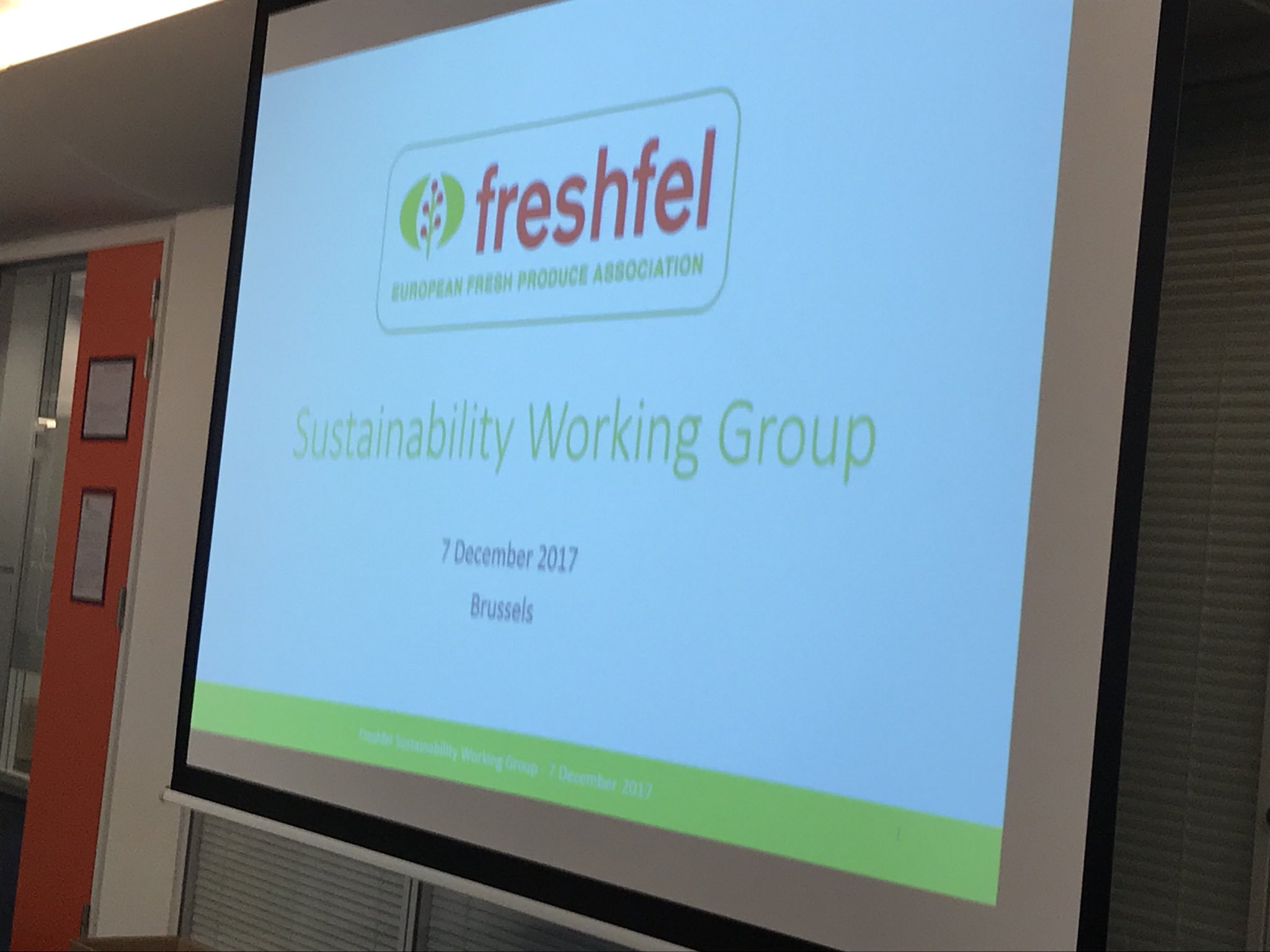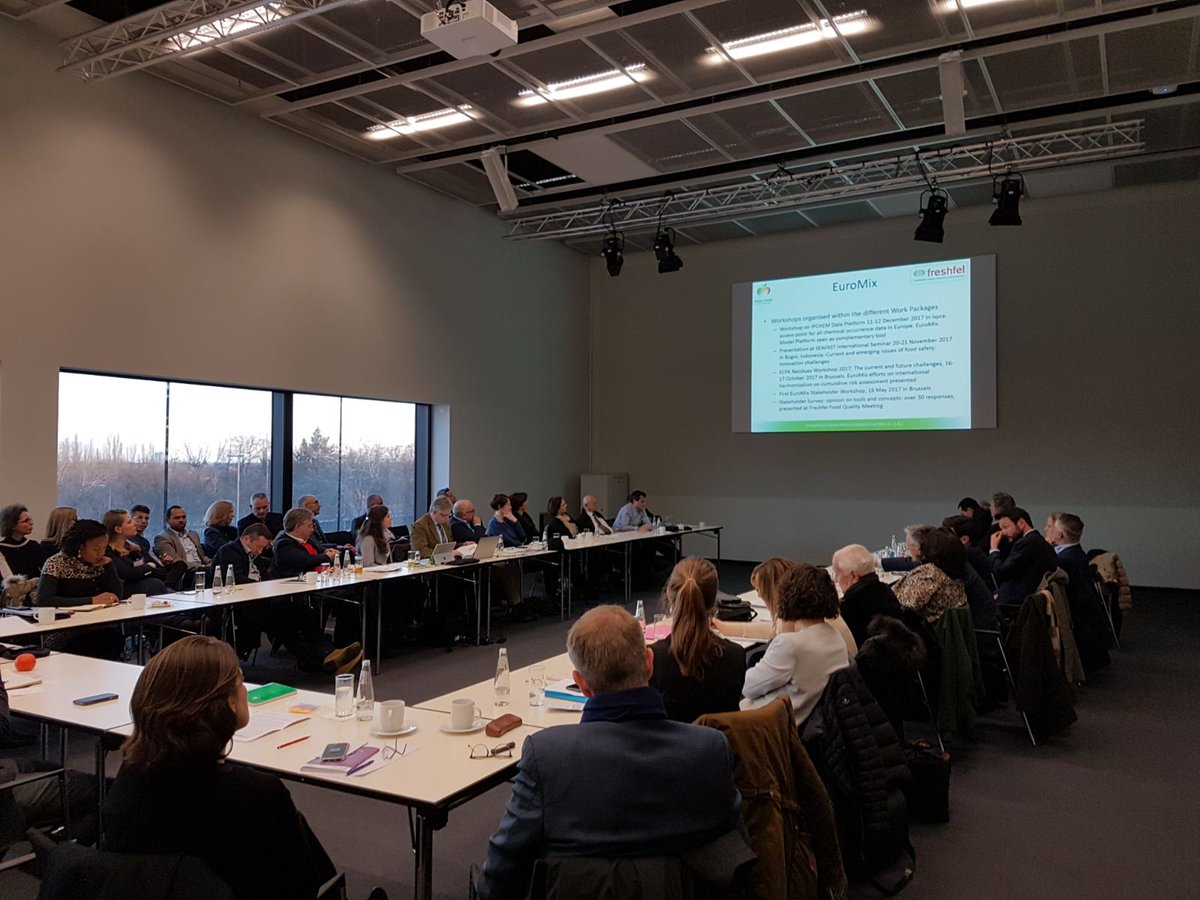
Freshfel Headlines – number 1 / 2018, covering news from December 2017 and January 2018
Freshfel Europe attends Fruit Logistica in Berlin
As every year, Freshfel Europe was present at Fruit Logistica and took the benefit of this unique global gathering for the fresh fruit and vegetables sector to hold its annual international trade meeting, gathering key representative of the global fresh produce business. The Freshfel meeting reviewed the latest business trends and developments of international trade policy, the state of play and implications of Brexit, food and plant safety policy as well as other aspects relating to sustainability and research and innovation. This year Freshfel Europe had its own stand in Hall 20 of the trade show, where visitors were able to enquire about Freshfel and its activities, and where Freshfel held many bilateral meetings with members and external stakeholders. As part of the Fruit Logistica Media Preview, Freshfel additionally published a press release, endorsing the industry’s adoption of social media in the digital business era, a tool to better position the fruit and vegetable category in the competitive food market.
Fruit Logistica 2018 took place this year from 7-9 February in Berlin, Germany. Fruit Logistica is the International Trade Fair for Fruit and Vegetable Marketing, and is the largest trade show for the fresh produce industry globally. This year more than 77,000 trade visitors from over 130 countries frequented the 3,1000 exhibitors at Fruit Logistica. Among these visitors were top-level decision-makers from all over the world.

Freshfel Europe, EHN and EPHA call for triple-win action on environment, economy and health
Freshfel Europe, the European Health Network (EHN) and the European Public Health Alliance wrote to European Commissioner for Agriculture and Rural Development Phil Hogan on the 2 February asking for concrete mechanisms and sufficient budget to support the European Commission’s Communication on The Future of Food and Farming’s prominent objective of healthy sustainable diets. In the letter, the three organisations affirm that through a smartly designed future CAP, the EU can address its citizens’ concerns and achieve a tripe win for economy, environment and health. The full press release and letter to Commission Hogan are available to read here.


Freshfel Europe organised Conference on Research and Innovation
On 23 January, Freshfel and AREFLH (the European Assembly of fruit, vegetable and horticulture regions) organised in coordination with the two European university and research centre networks for fruit and vegetable related research, EUFRIN and EUVRIN, a conference on the research priorities for the fruit and vegetable sector for the current Horizon 2020 funding programme and its successor, Framework Programme 9 (FP9). The aim of this pan-European multi-stakeholder meeting was to review the state of play of research and innovation for the fruit and vegetables sector and to further reinforce the successful cooperation between the four organisations. The meeting reviewed the current state of play and lessons learnt from the sector’s involvement in the Horizon 2020 funding programme, and the way forward towards the future funding programme FP9. It also served to highlight the sector’s specific problems: diversified products, perishability, different areas of production with specific challenges such as drought, and the sector’s added value in relation to health and sustainability. The sector lamented that fruit and vegetables remain under-represented within Horizon 2020, and that this is not reflecting the size of the sector in the economy and its societal and health benefits.
After the conference, the core Task Force for fruit and vegetable research, of which Freshfel is member, renewed its intention to continue working for better representation of the sector in successful EU funding programmes. The first action the Task Force undertook was to remind policy makers of the main relevant messages for the sector via a joint statement. In the near future, the informal network will renew the Strategic Innovation and Research Agenda in light of the future discussion regarding FP9.

Freshfel Europe participates in SIVAL presenting opportunities for fresh apples
In the frame of SIVAL, the French fresh produce fair in Angers (France), CTIFL hosted a dedicated seminar on apples: How to produce differently to meet the expectation of tomorrow’s market on the 17 January. As farming and commercial practices are greatly evolving, several experts from the technical and from the business side debated how the apple industry is coping with new challenges and how to best position the category for the future. Daniel Sauvaitre (President of the ANPP, the French National Association for apples and pears) and Alessandro Dalpiaz (Director of Assomela) were also speakers at the conference along with Philippe Binard, General Delegate of Freshfel Europe who provided an overview of the latest trade development as well as the trends for organic apples. Other speakers highlighted how to produce apples with less labour or with less pesticides.

Freshfel Europe assisted a trade facilitation project in the CEFTA region
The International Trade Center (ITC), an implementing agency of the WTO together with the Deutsche Gesellschaft für Internationale Zusammenarbeit (GIZ) have launched a common project to tackle trade barriers within the Central European Free Trade Agreement (CEFTA) in 2017. The project is funded with €3 million Euro grant from the European Union, and aims to harmonise trading structures between the different parties of the CEFTA region as well as to create more proximity to EU trading structures long-term. The action takes an integrated bottom-up approach which includes “harmonization”, “standardization” and “simplification” of rules and procedures. The main focus areas are the trade of vegetables among the CEFTA partners as well as industrial goods. The project just kicked off in autumn 2017 with first stakeholder rounds in all CEFTA member countries (Serbia, Kosovo, Montenegro, Moldova, Bosnia and Herzegovina, Albania, Macedonia), to identify the biggest challenges, when trading within the region. Freshfel’s trade policy advisor Nelli Hajdu assisted to a first meeting in Tirana/Albania at the 6 & 7 December 2017, to explain how the EU is tackling SPS and technical barriers in the internal market as well as in trading with third country markets.


Freshfel Europe Food and Plant Safety Meeting
Around 35 members of Freshfel met in Brussels to review the latest developments for the sector around food and plant safety matters. The meeting was an opportunity to debate with DG Santé plant health department about the pending dossiers. The meeting also reviewed the latest development of the food safety legislation in particular regarding actives substances and their MRL and contaminants, as well as the working progress of different projects in which Freshfel takes a role of a disseminator.
The participants also welcomed an expert on labelling requirements for fruit and vegetables from DG AGRI. Following the discussion, Freshfel organised a side visit for the European Commission services to a pre-cut vegetables facility to demonstrate the complexity of the issue with regard to origin labelling of ready-to-eat and kitchen friendly fresh produce. The visit was well received and Freshfel will continue the dialogue with the services of the European Commission in order to find the best solution.

Freshfel Europe Sustainability Meeting
On the 7 December Freshfel members met in Brussels to discuss the latest policy developments for the fruit and vegetable sector regarding sustainability. The annual sustainability meeting provides an opportunity for Freshfel members to share innovative sustainable best practices, outline both environmental and social sustainability policy developments and discuss pertinent sustainability topics to forge a more sustainable fresh produce supply chain from farm to fork. As such, this meeting focused on a selection of relevant sustainability issues at European and Member State level for the fruit and vegetable sector. These included sustainable production methods, social compliance standards and requirements, CSR reporting and food loss and food waste in the fruit and vegetable sector.


